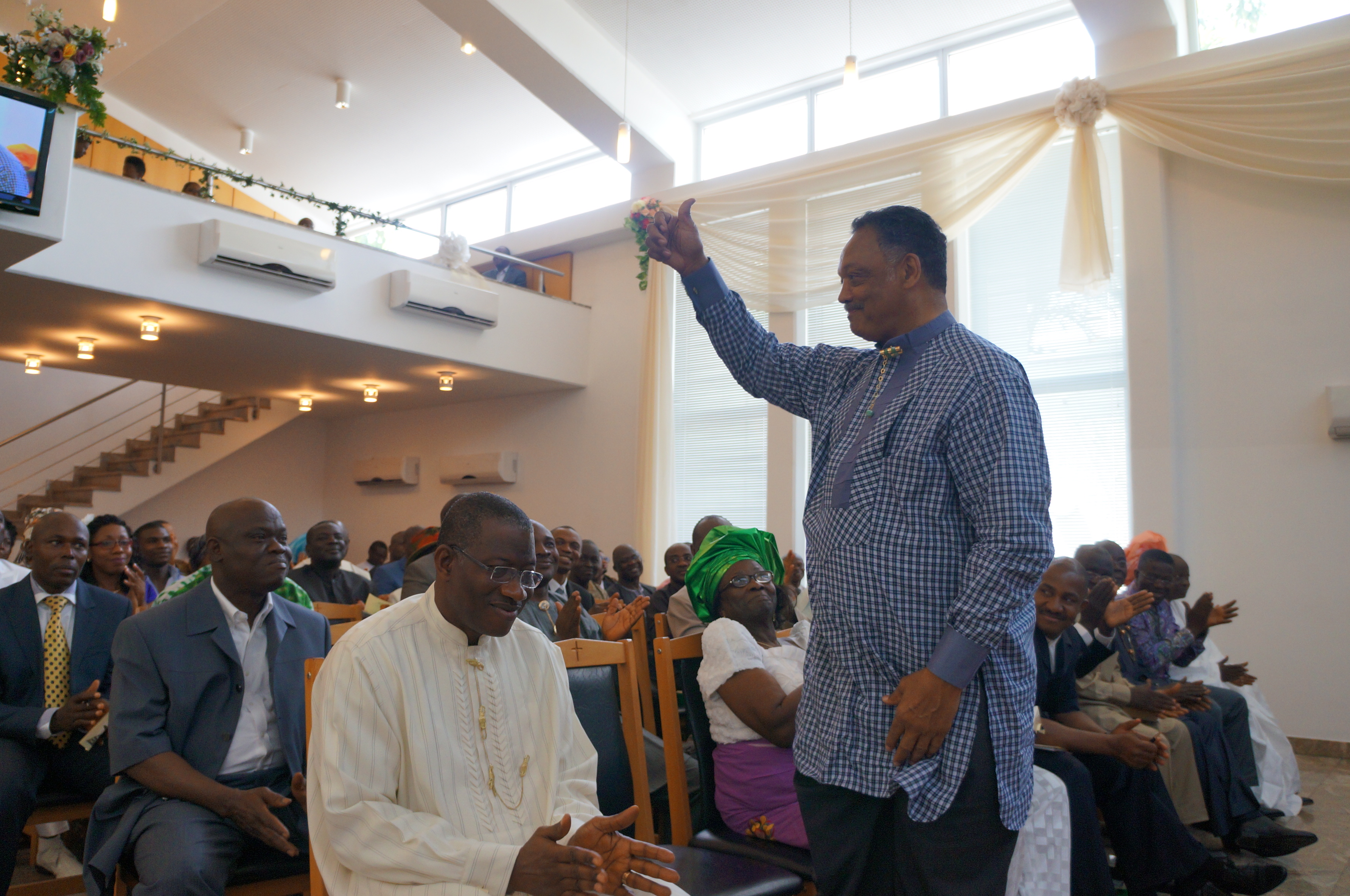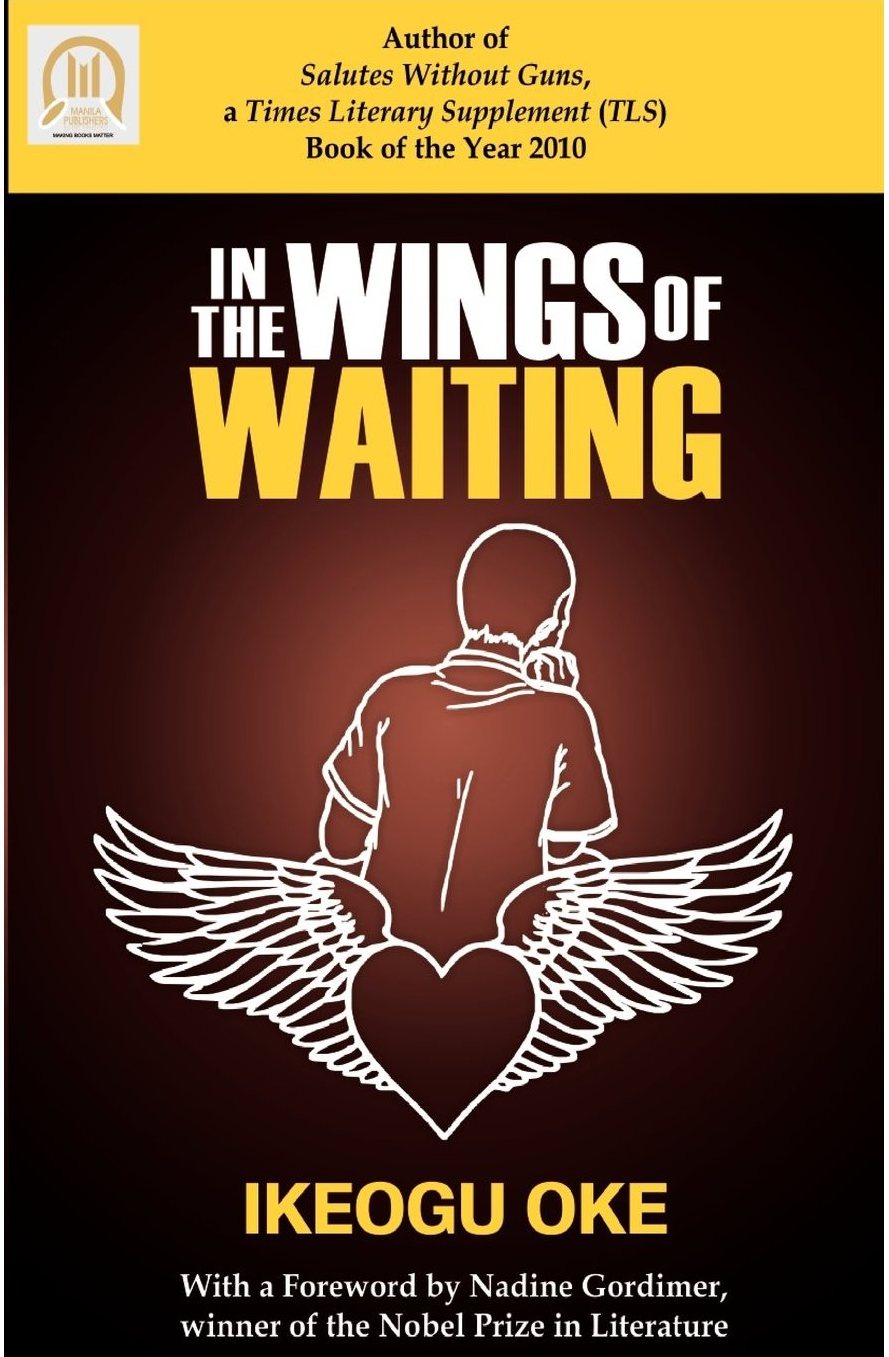Boro the Dreamer: He Keeps on Living Beyond His Death
Africa’s Garden of Eden: Rich Soil and a Poor People
Rev. Jesse L. Jackson, Sr.
May 17, 2013
I would like to extend my deepest appreciation to Governor Henry Dickson and the Bayelsa State Government for inviting me to participate in this major Isaac Boro celebration today. A man of strength of character and vision, a strong work ethic, a will to make life better for his people. He deserves this admiration and appreciation.
To the esteemed President Goodluck Jonathan, who hails this state, Ken Soro Wiwe, and Professor Achebe; and David Ogula and all of the Diaspora members.It’s good to be back home again.
I bring you greetings from North America. There are 42 African American members in the US Congress; 2 in the US Senate. An African American President in Barack Obama. A $1 trillion consumer market. We look forward to this reunion.
I am reminded of the Scripture, Micah Chapter 6, Versus 4-8
4: For I brought thee out of the land of Egypt, and redeemed thee out of the house of servants; and I sent them before thee, Moses, Aaron, and Miriam.
5: O my people, remember now what Balak king of Moab consulted, and what Balaam the son of Beor answered him from Shittim unto Gilgal; that ye may know the righteousness of the Lord.
6: Wherewith shall I come before thee, Lord, and bow myself before the high God? Shall I come before him with burnt offerings, with calves a year old?
7: Will the Lord be pleased with thousands of rams, or with ten thousands of rivers of oil? Shall I give my first born for my transgressions, the fruit of my body for the sin of my soul?
8: He hath shown thee, O man, what is good; and what doth the Lord require of thee, but to do justly, and to love mercy and to walk humbly with thy God?
In this scripture, God rejects all forms of bribery and superficial gifts. He asks only that you honor me with a formula that leads to justice.
Today we honor Isaac Boro: a young student who started at 21, killed at 30; like Dr. Martin Luther King, started at 26, killed at 39, both freedom fighters who set the tone for liberation and became a national heroes in their day.
Dr. King killed April 4, 1968; Major Boro killed May 16, 1968, a month apart.These young men were leaders in the golden season of ending racial apartheid and colonialism.
Jesus emerged as a leader at 30, but killed by age 33.So often the visions and hopes, and actions, of the youth, unblemished by fear and corruption, take us to a higher level.
Martin Luther King emerges in Alabama in 1955; Little Rock Nine denied equal education in American in 1957; Boro emerges in 1959, student sit ins in America 1960 – I was jailed in the summer of 1960 for trying to use a public library.
This was young people choosing to forward by hope and not backward by fears. Dreamers often die young. But lies cannot deter dreamers. Jails cannot contain. Graveyards cannot bury them. Some debate who killed Boro and Dr. King. Of that we will never be sure. What we know is that God resurrected them and they lived beyond the grave.
Nigeria: A Garden of Eden in Africa
God blesses this nation with everything it needs or wants:
* Intelligent, ambitious and industrious people.
* Fertile soil
* Oil, beneath the soil
* Oceans and rivers
* Fish and farmland
There is no war in the Garden. No pollution. That’s because Shell and Chevron were not there. No racism. Except for the sin against God, man had heaven on earth.God has given Nigeria these gifts, now we must give God a gift. PEACE. But the key to peace is the presence of JUSTICE.
Peace does not equal quietness, or the absence of noise. Often the oppressed are quiet, intimidated – their pain is suppressed, but their predicament does not suppress their aspirations.Their thirst for justice and fairness must be quenched.
John, in the Bible, was exiled on the Isle of Patmos to die in humiliation and shame. It was often to be out there alone without food, and living in squalor. Yet God allowed him to have a new vision, to see a new heaven and a new earth. The old one would pass away and God promised to wipe his tears from his eyes.
No matter what your predicament, keep dreaming.
Justice and Mercy: Rich Soil, poor people
The laws of justice, without mercy, can be harsh. We must temper justice with mercy, and accept the moral challenge to honor the Golden Rule – and pursue a city and a nation whose maker and builder is God. And at it’s highest and deepest, and breadth, the city has balance.
It is not right for a people to starve on a farm full of fertile soil, fruits and vegetables. How can people swimming in oil, wallow and drown in poverty? It’s not right, it’s a moral disgrace.
People starving on an island of poverty amidst an ocean of prosperity, is not inevitable. It’s not natural. It’s not the will of God.There should be no war in the Garden of Eden, over food, over oil, when there is a surplus, there is abundance. This struggle for economic justice must be globalized – as in Bangladesh. African Americans and freedom loving people around the world must ally with you in this struggle.
Nigerians are a brilliant people. They are at the heart of the Diaspora. Many of the world’s greatest scholars, scientists, teachers and engineers, are from Nigeria.
Africa is1/8 of the human race, 1/4 of all of the people in Africa. Nigeria’s wingspan connects with half of the continent. We must work together to overcome the contradiction between rich soil, and poor people.
In 1960, Nigeria won its Independence – but it’s not enough to be free, the people will not rest until there is economic justice and equality. Freedom without economic justice, without equality is free to starve, to be illiterate, to be unhealthy, to be desperate. Beyond slavery and colonialism there must be economic reconstruction, economic justice.
It is a sin, in this Garden of Eden, for such inequality and poverty to exist alongside of such riches and oil resources: In the Garden of Eva, the issue is not the lack of resources, but greed, jealously and violence that drove man to disobey God and fall from his high place. Today we seek redemption, renewal, and a spirit of love. We must build bridges. We must close the gaps.
We cannot allow the oil companies to denigrate our Garden of Eden, to pollute our air and water and land and violate the preciousness of the Niger Delta with environmental warfare. They are not allowed to unleash gas flares in the U.S. or spill oil without consequences, and kill fish and wild life. Those same standards must apply to Nigeria.
The oil companies must be fair partners, building and rebuilding refineries. For Nigeria not to refine oil, is degrading and structurally unjust.
Amnesty must be honored fully. Pipeline theft of 300,000 barrels must be stopped – at the pipelines, terminals and tankers. Shell and Chevron and other companies must honor global laws of justice and environmental protection. We must act on the 2011 environmental program report.
Principles for peace, justice and prosperity
Let’s address structural disorder, with Principles for peace, justice and prosperity: to have balance, we must have:
Respect for international law
Self-determination
Economic Justice
Shared Security
Transparency
One set of rules
We have globalized capital but not human rights, workers rights, women’s rights, children’s rights, environmental security, economic justice and one set of rules.
When Nigeria plays Ghana in the big game, if you win, you win with grace; if you lose, you lose with dignity, never humiliation. And you prepare for the next game. The conditions that enable equal opportunity and the chance to win are: the playing field is even, rules are public and the goals are clear, the referee is fair and the transparent. We must fight for rules of economic justice.
Dream Nigeria
Dream Nigeria as Major Boro did, as Dr. King did. You defied the odds of occupation, separation and divisiveness and manipulation, you survived.
Dream.
You waged a mighty struggle for independence. You must complete the mission and fight for peace and equality.
Dream.
You learned to survive apart, now you must tackle and even more difficult mission, learning to live together in peace, a fight worth fighting for with all of your soul.
Choose co-existence over co-annihilation.
Dream.
Nigeria is divided not so much by region, religion or tribe – but by greed. TOO FEW HAVE TOO MUCH, TOO MANY HAVE TOO LITTLE.
Dream.
The Jesus standard: you measure a great nation or great man not by how much he has, but how much he shares.
Boro was a dreamer. That’s why the graveyard could not contain him. There’s power in the dream. It’s not limited. Its beyond budget debates and parties, races and tribe. To Dream is to be free to imagine.
Dream, of a ONE Nigeria. One nation, under God, with liberty and justice for all.
Dream of a fair formula between states and the federal government. States must own the land they have beneath their feet, and make a fair contribution to the federal government.The federal government has no more right to occupy a state, than a former colonial power has the right to occupy a state.
Dream: Of an environment not polluted by gas flames. Of oil refineries directed by and operated by Nigerians, for the Nigerian people.
Dream of the day when we can wipe out malnutrition.
Dream of the day when we have clean, affordable drinkable water for our children.
Dream.
Dream of the day when we have health care facilities to care for the sick. Dream when everybody has a house with indoor toilets and a running bath. Dream, the blessed in the Diaspora, come home on an annual basis and share your resources, and feed the flower that they have robbed.
Dream of the day when we have free education to inspire and train our youth. Dream Nigeria…of non-violent conflict resolution. More trade and global markets.
Dream of One Nigeria, one lion and lamb lie together, Lion and lamb are two extremes. It seems they can never reconcile. What is it lions and lamb have in common? No matter how ferocious the lion is and how meek is the lamb, neither want acid rain on their backs; they don’t want to drink poison water. They want to breathe free.
God has given us the oil, the fish, the farmland and oceans. Allow us to love and live and abundant life, not a violent death.
The oil resources must unite us, not divide us. Nigeria and opportunity, and self-determination, must be synonymous. Nigeria and corruption are irreconcilable terms, must be radically rejected.Let’s turn our dreams into reality.
I know dreaming may be difficult. I know it’s dark, but the morning cometh.I know it’s difficult, but the Lord is our light, and our salvation, whom shall we fear.
It gets dangerous some times, whoa we walk thru the shadows and the valleys of death. We shall fear no evil, the Lord is with us.
Long live one Nigeria.
The formula is clear; if you want healing, do justice, love mercy and walk humbly before thy God.
And if my people who are called by name and humble themselves and pray, and seek my face, and turn from their wicked ways, I will hear their prayer. Forgive their sins and heal the land. One Nigeria.
Keep Hope Alive.


